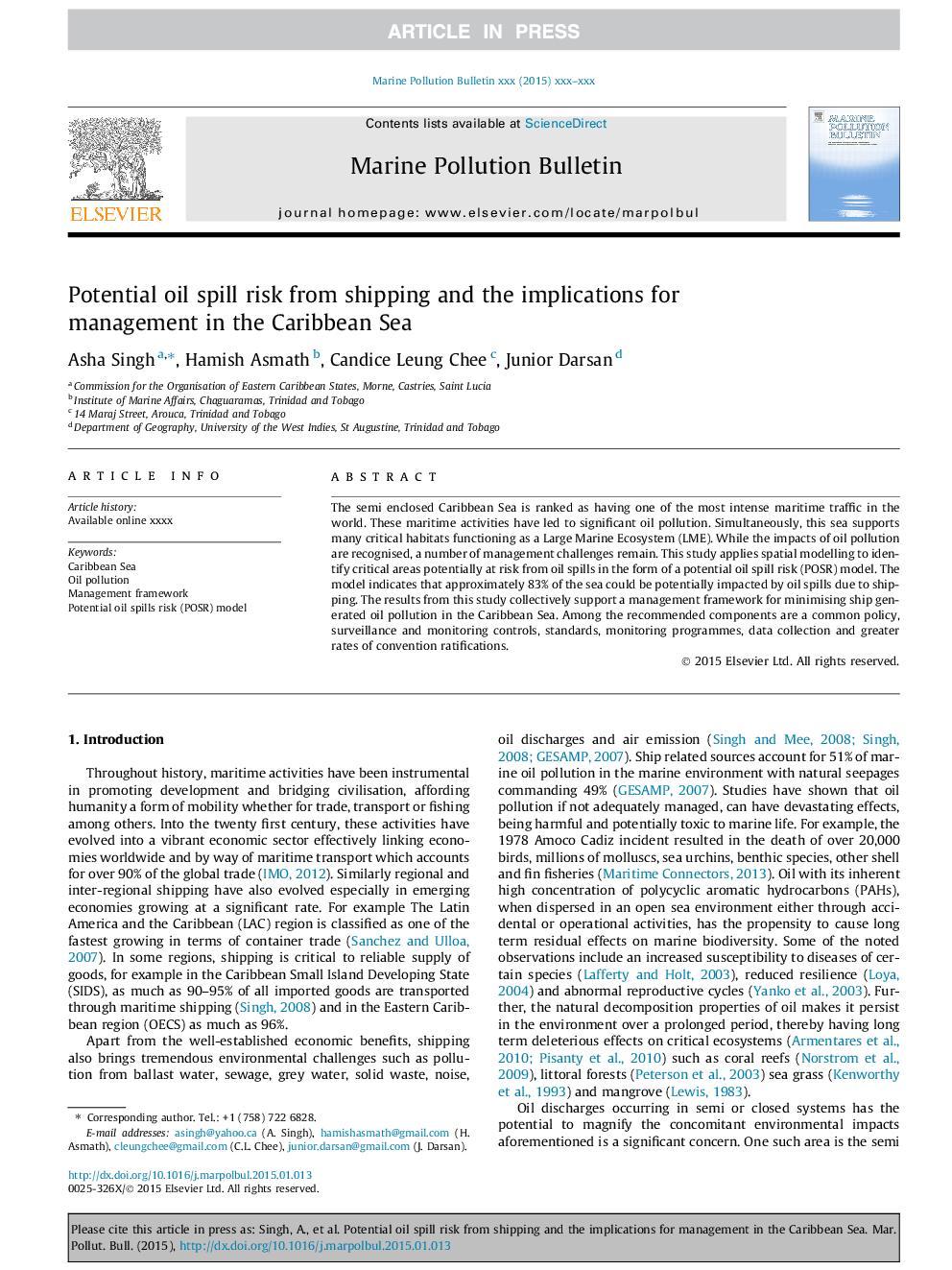| Article ID | Journal | Published Year | Pages | File Type |
|---|---|---|---|---|
| 6356974 | Marine Pollution Bulletin | 2015 | 11 Pages |
Abstract
The semi enclosed Caribbean Sea is ranked as having one of the most intense maritime traffic in the world. These maritime activities have led to significant oil pollution. Simultaneously, this sea supports many critical habitats functioning as a Large Marine Ecosystem (LME). While the impacts of oil pollution are recognised, a number of management challenges remain. This study applies spatial modelling to identify critical areas potentially at risk from oil spills in the form of a potential oil spill risk (POSR) model. The model indicates that approximately 83% of the sea could be potentially impacted by oil spills due to shipping. The results from this study collectively support a management framework for minimising ship generated oil pollution in the Caribbean Sea. Among the recommended components are a common policy, surveillance and monitoring controls, standards, monitoring programmes, data collection and greater rates of convention ratifications.
Related Topics
Physical Sciences and Engineering
Earth and Planetary Sciences
Oceanography
Authors
Asha Singh, Hamish Asmath, Candice Leung Chee, Junior Darsan,
